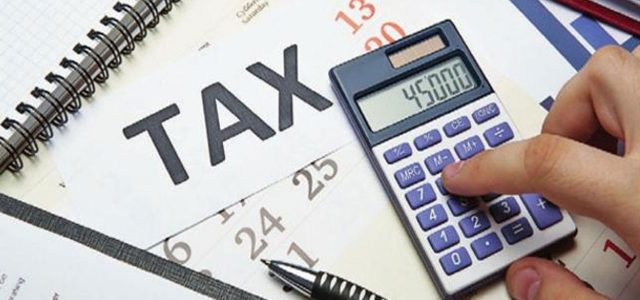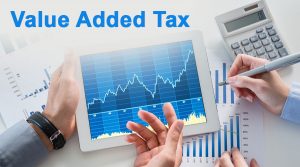Just like you, many people have repeatedly asked this question, ” What is VAT and how does it work?. Do not worry this post will give you a piece of in-depth knowledge on what exactly is VAT, The rate, and how to calculate VAT in Nigeria
Alot of people in Nigeria equally don’t have an idea they pay extra cash to the government on some certain goods purchased, However, not all products or services are VATable (VAT charges are not applicable to them).
VAT (Value Added Tax)
VAT in simple words is a consumption tax that is levied on a product repeatedly at every point of sale where value has been added. It commences from when the product is in the raw material stage to the point it’s been purchased by the final consumer.
The amount of VAT levied at the point of sale along the production chain is based on the value added by the seller. All manufacturers in the production chain do charge VAT to the buyer, which is then remitted to the government.
For instance, if you purchase a product that costs ₦200 and there’s a VAT of 5% while buying, you’re definitely paying a total of ₦210 to the seller.
How is the VAT Rate Charged?
It is currently charged at the rate of 7.5% after being raised from 5% on the 1st of February 2020. It is levied on all VATable goods and services except those specifically excluded by the VAT Act.
VAT is administered by the Federal Inland Revenue Services (FIRS) through its VAT directorate with offices in almost all the local government areas in the country.
They are the agency responsible for accessing and accounting tax accruing to the federal government of Nigeria.
How to Calculate VAT (Value Added Tax in Nigeria)
In Nigeria, calculating VAT seems to be a very difficult task to do but I assure you if you can read this
post till the end, it would charmingly be your simplest math ever.
However, before we go in deeper into the calculation aspect, you need to know who a VATable person is and their examples too.
A VATable person is one who deals in VATable goods and services. Examples of such include:
- A limited liability company e.g. Bawas Limited
- A firm e.g. Law & Co.
- A sole trader e.g. Chike & Sons
- An individual e.g. Emeka shops
- A Club or society e.g. Royal Social Club
As a VATable person, how do you know you’re not overpaying or underpaying when it comes to value Added tax? That is why it is expected that individuals need to have a basic knowledge of how to calculate VAT.
Once you’re a registered VAT payer, 7.5% of the money your customer pays for goods and services is calculated as your output VAT, on the other hand, when you purchase any goods and services, 7.5% of the money you pay is calculated as Input VAT.
To determine the exact amount that goes to the government, you need to subtract your INPUT VAT from your OUTPUT VAT.
That is; Total payable VAT to the government = OUTPUT VAT – INPUT VAT
How do you see that? I trust you’re enjoying the process.
- Conclusion: How To Become Bigi drinks Distributor in Lagos
Output and Input VAT Calculation with Examples
This is a step-by-step guideline to calculate output, and input and how to determine the total VAT payable to the government’s purse. Here is an example compiled with the solution:
Earlier last year, A bag manufacturer sold a luxury bag to a final consumer for ₦50,000. The raw material for the bag was bought at ₦30,000. According to the present VAT rate, determine the:
Output VAT
Input VAT
Total VAT payable to the government.
Solution
Output VAT = The 7.5% VAT you charge on goods and services you supply or sell.
Input VAT = The 7.5% VAT you pay on goods and services that you use.
Since the manufacturer of the bag sold the bag for N50,000, 7.5% of the ₦50,000 is the output VAT. (This is constant because we assume that 7.5% VAT is always added on every good and service sold).
Output VAT = 7.5% of ₦50,000
Output VAT = ₦3,750
Since the manufacturer spent 30,000 Naira to buy the raw materials for the phone production, 7.5% of that amount is called the input VAT.
Input VAT = 7.5% of ₦30,000
Input VAT = ₦2,250
The total VAT payable = Output VAT – Input VAT
Total VAT payable = ₦3,750 – ₦2,250
The total VAT payable to the government = ₦1,500
The above amount is payable because the output tax exceeds the input tax. In a situation where the input VAT exceeds the output VAT, the deficit can be claimed by a refund.
There are three (3) means to claim your refund and they are;
- The credit method
- Direct cash refund method and
- A combination of the two
The application of the credit method is allegedly the most widely used because of the difficulty that may be encountered with direct cash refunds.
How VAT is Paid in Nigeria
Payment of tax in Nigeria (VAT in this case) has now gone electronic as cash payments are no longer advised due to the alarming rates of corruption in Nigeria.
The remittance of tax can either be deducted from the source, collected at the point of sales or purchase, or individuals can willingly make their tax payment.
The platforms highlighted below are the approved platforms for VAT payments in Nigeria;
- Remita
- Interswitch
- NIBSS
- eTranzact Online Payment
When is VAT Remitted in Nigeria?
VAT is to be REMITTED to the FIRS on or before the 21st day of every month. A VATable person who fails to remit VAT shall be liable to pay a fine of N50,000 for the month of default and a fine of ₦25,000 for every subsequent month in which the default continues.
This fine is also applicable for businesses not registered for VAT, with a penalty of ₦50,000 for the first month in which the failure occurs and ₦25,000 for each subsequent month.
After a period of time, an unregistered business that fails to remit VAT would be sealed by the FIRS ( Federal Inland Revenue Services).
- Read Also: How To Make Free calls From USA To Nigeria
Goods and Services that are Subject to Pay VAT
Businesses in Nigeria that falls under the criteria outlined below shall be charged and VAT would be paid on all goods and services rendered except for those specifically exempted by the Act.
To be subject to VAT, it must meet the following criteria;
In the case of goods:
- The goods are physically present in Nigeria at the time of supply
- The goods are imported, assembled or installed in Nigeria
- The beneficial owner of rights in or over the goods is a taxable person in Nigeria and
- The goods or rights over it are situated, exercisable or registered in Nigeria.
In the case of services:
- The services are rendered in Nigeria by a person physically present in Nigeria at the time of rendering the service.
- The services are provided to a person in Nigeria regardless of whether the service is provided within or outside Nigeria.
Read Also: Cost of IVF in Nigeria
Goods and Services that are Exempted from VAT
Even with the expectation of paying tax, it might interest you to know that some certain goods and services are exempted from paying tax.
These goods and services are not VATable, that is, VAT is not applicable to them, on the other hand, several goods and services are being considered as zero rates, in such cases, tax applies to such goods but at the rate of 0%.
Examples of Goods Exempted From VAT
- Agricultural equipment and products and veterinary medicine
- All Medical and pharmaceutical products
- Basic food items
- Books and educational materials
- Baby products
- Commercial vehicles and their spare parts
- Fertilizers, farming machinery and farming transportation equipment
All exports - Plants and machinery used in the export processing zone
- Plant, machinery and equipment purchased for utilization of gas in downstream petroleum operations
- Tractors, ploughs, agricultural equipment and implements purchased for agricultural purposes
- Locally manufactured sanitary towels
Examples of Services Exempted from VAT
- Services rendered by microfinance banks, mortgage institutions and people’s banks
- All exported services, that is services rendered within or outside Nigeria by a person resident in Nigeria to a non-resident outside Nigeria.
- Plays and performances conducted by educational institutions as part of learning
- Services related to education
- Medical services
Read Also: Cost of Vehicle Registration in Lagos
Conclusion: How to Calculate VAT (Value Added Tax) in Nigeria
I’m sure you might have understood a few things related to value-added tax and how to calculate VAT in Nigeria.
But I want you to know that tax payment is considered a civic duty, you need to realize that Tax is not just paid to feed the government purses, they also serve a purpose, it helps in building social amenities, infrastructures, health facilities etc.
This is how it’s done. We advise you to pay when expected of you, so it could promote the goodwill and reputation of your business and help to avoid penalties.
- CAC Accredited Agent Registration 2025: Online Requirements - January 15, 2024
- Best Coding Schools in Lagos 2025 - October 23, 2023
- How AI Technology Plays a Role in Education & Business - August 25, 2023



I really appreciate, This is a welcome development for me. I have gotten understanding about Tax system in Nigeria.
what about entertainment tax on tickets for cultural exhibitions
assume you sell 1 ticket, what is than the proper way to calculate?
Base amount
+ Entertainment tax
Vat to calculate over base amount + Ent Tax
Or Base amount
+ Entertainment tax
+ Vat over base amount
Good-day
Please, I need to know more about VAT. I am an Accountant in an established restaurant and tasked with the responsibility to calculate or prepare VAT.
How do I go about it?
Regards
Chinedu
Please have you gotten a reply?